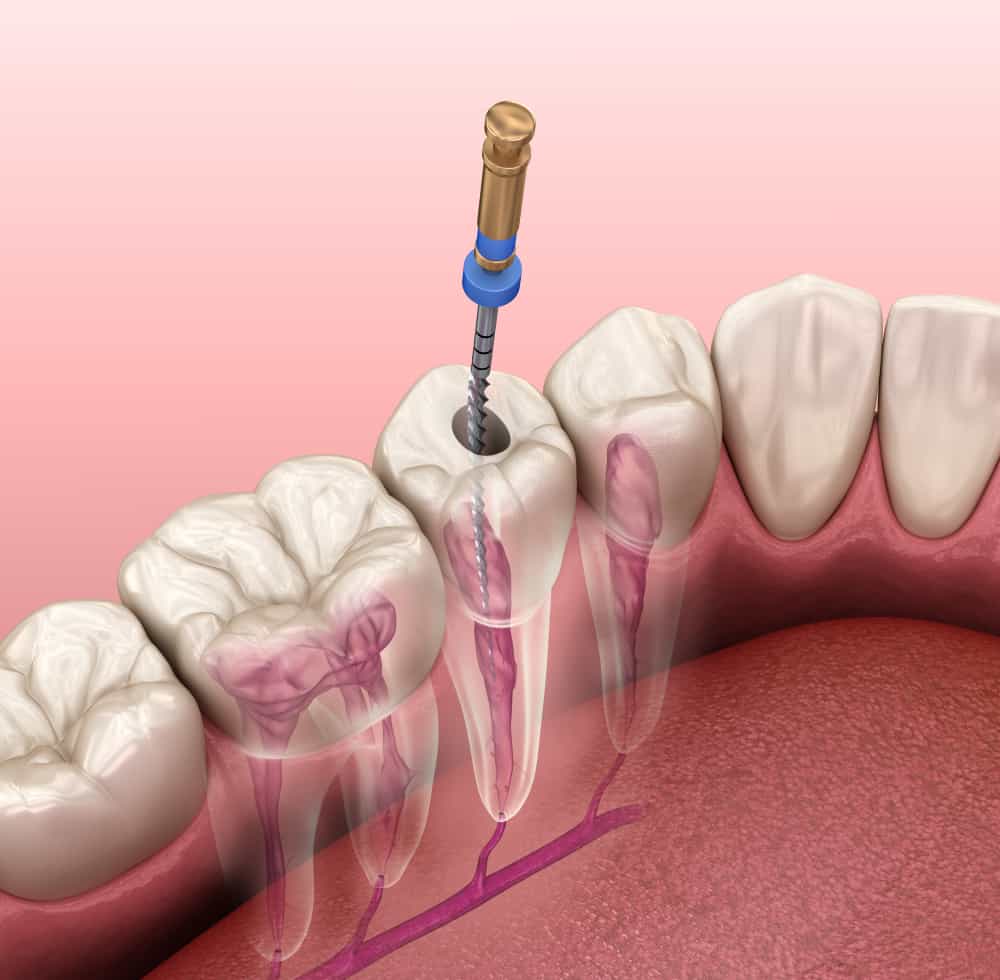Treatment Name
PAINLESS ROOT CANAL TREATMENT
Doctor Name
Dr. Sanjay Singh
Painless root canal treatment, also known as endodontic treatment, is a dental procedure aimed at treating a tooth that has become infected or damaged due to deep decay, trauma, or other factors. The term "painless" indicates that the procedure is performed with the goal of minimizing or eliminating discomfort for the patient through the use of local anesthesia and modern dental techniques.
During a root canal treatment, the dentist or endodontist (a dentist specialized in treating the inner part of the tooth) will remove the infected or inflamed pulp tissue from the tooth's interior, clean and disinfect the root canals, and then seal the space to prevent further infection. This helps to save the tooth and alleviate the associated pain.
Here's what typically happens during a painless root canal treatment:
Anesthesia: Before the procedure begins, the dentist will administer local anesthesia to numb the area around the affected tooth. This ensures that the patient doesn't feel any pain during the treatment.
Access Opening: The dentist creates a small access opening on the top of the tooth to reach the pulp chamber and root canals.
Pulp Removal: The infected or inflamed pulp tissue is carefully removed from the tooth's interior using specialized instruments.
Cleaning and Shaping: The dentist cleans and shapes the root canals to remove any remaining debris and bacteria. This step is crucial for preventing future infections.
Filling: Once the canals are thoroughly cleaned and shaped, they are filled with a biocompatible material called gutta-percha to seal the space and prevent bacteria from re-entering.
Restoration: In most cases, a tooth that has undergone a root canal treatment will require further restoration. This may involve placing a dental crown over the treated tooth to provide strength and protection.
Modern advancements in dental technology, along with the use of effective local anesthesia, have made root canal treatments much more comfortable for patients. Dentists strive to ensure that patients experience minimal pain and discomfort during and after the procedure.
If you are experiencing tooth pain or suspect you may need a root canal treatment, it's important to consult a dentist as soon as possible. Early intervention can help save the tooth and prevent the infection from spreading. Keep in mind that individual experiences may vary, and it's always a good idea to discuss any concerns or questions with your dentist before undergoing any dental procedure.







